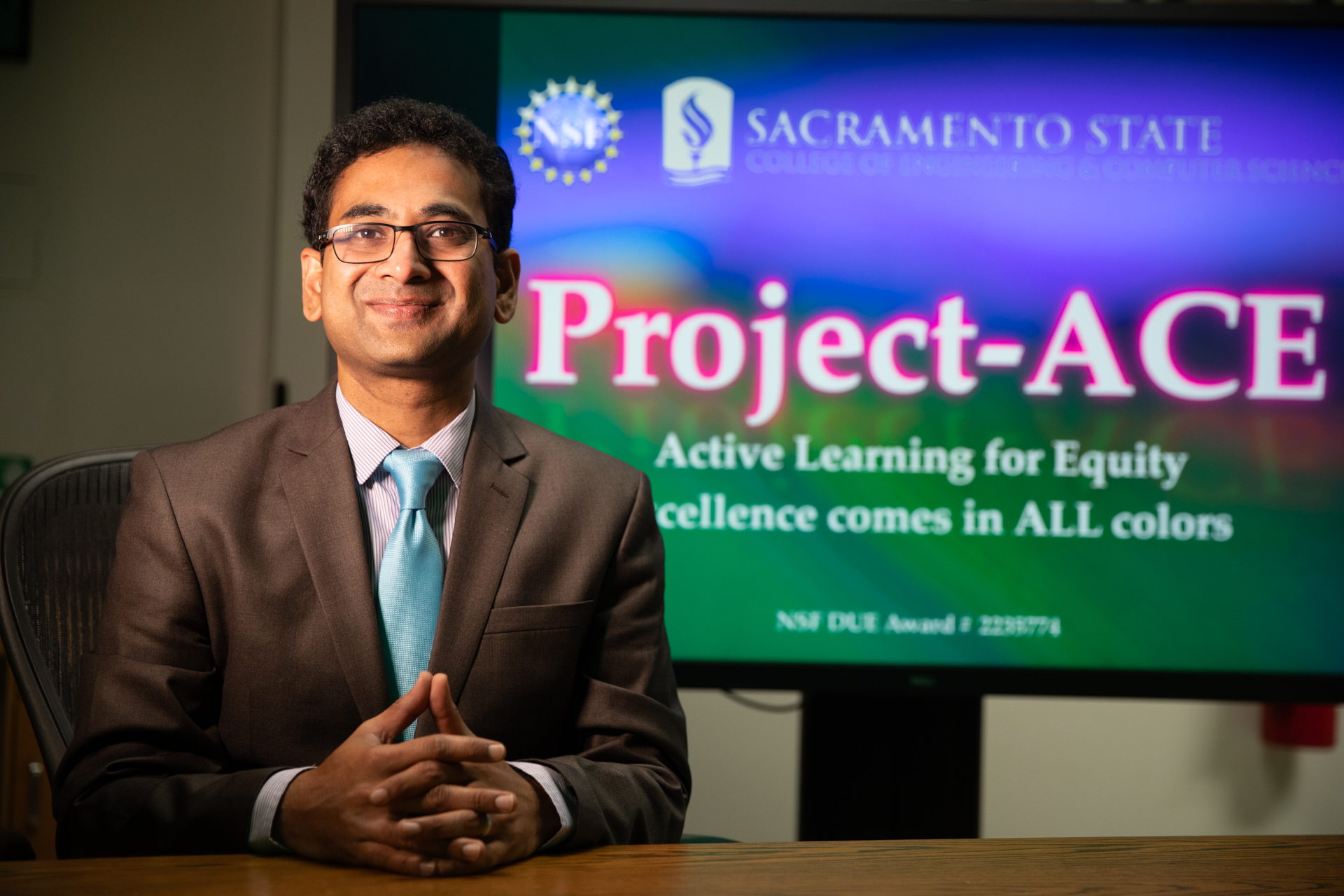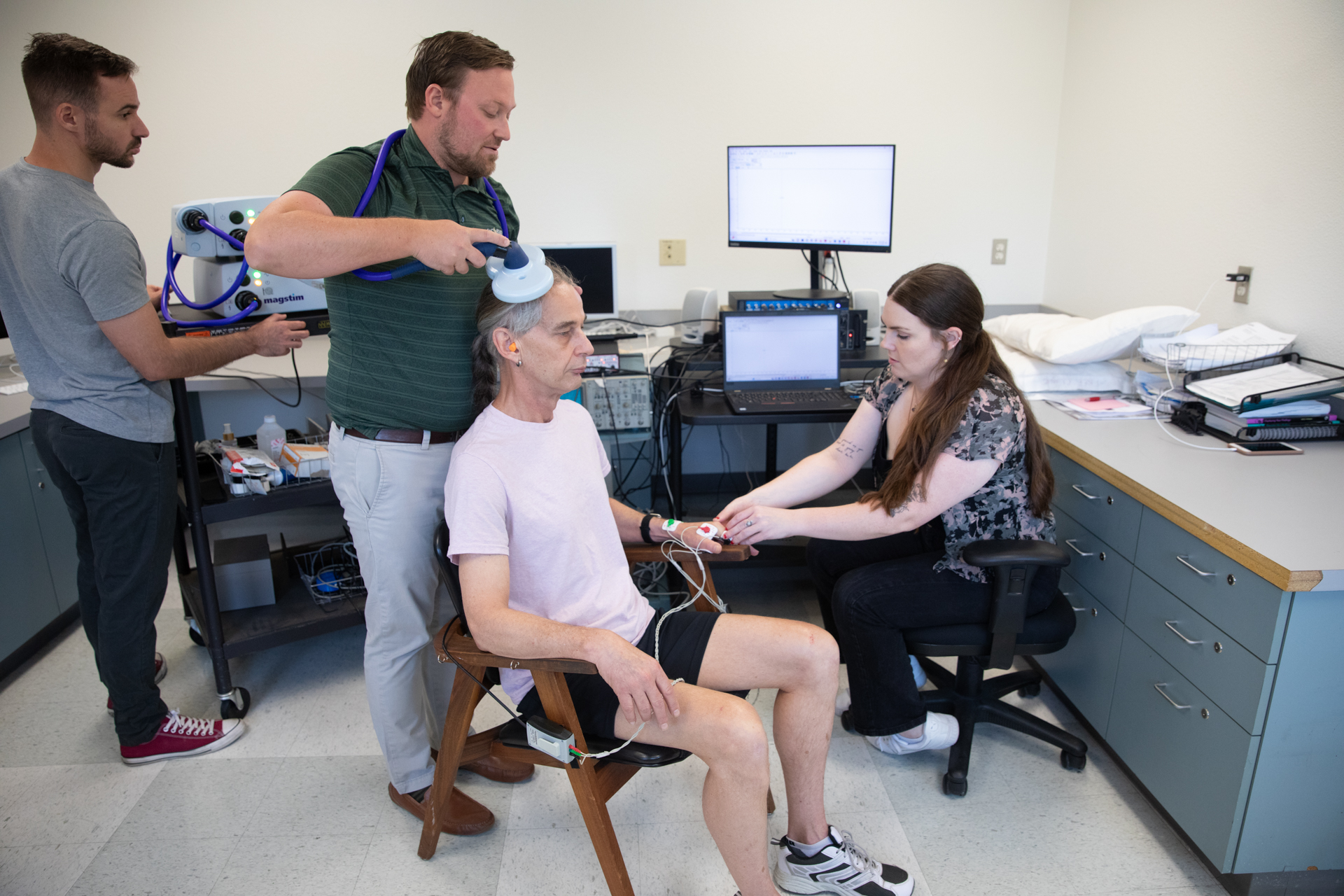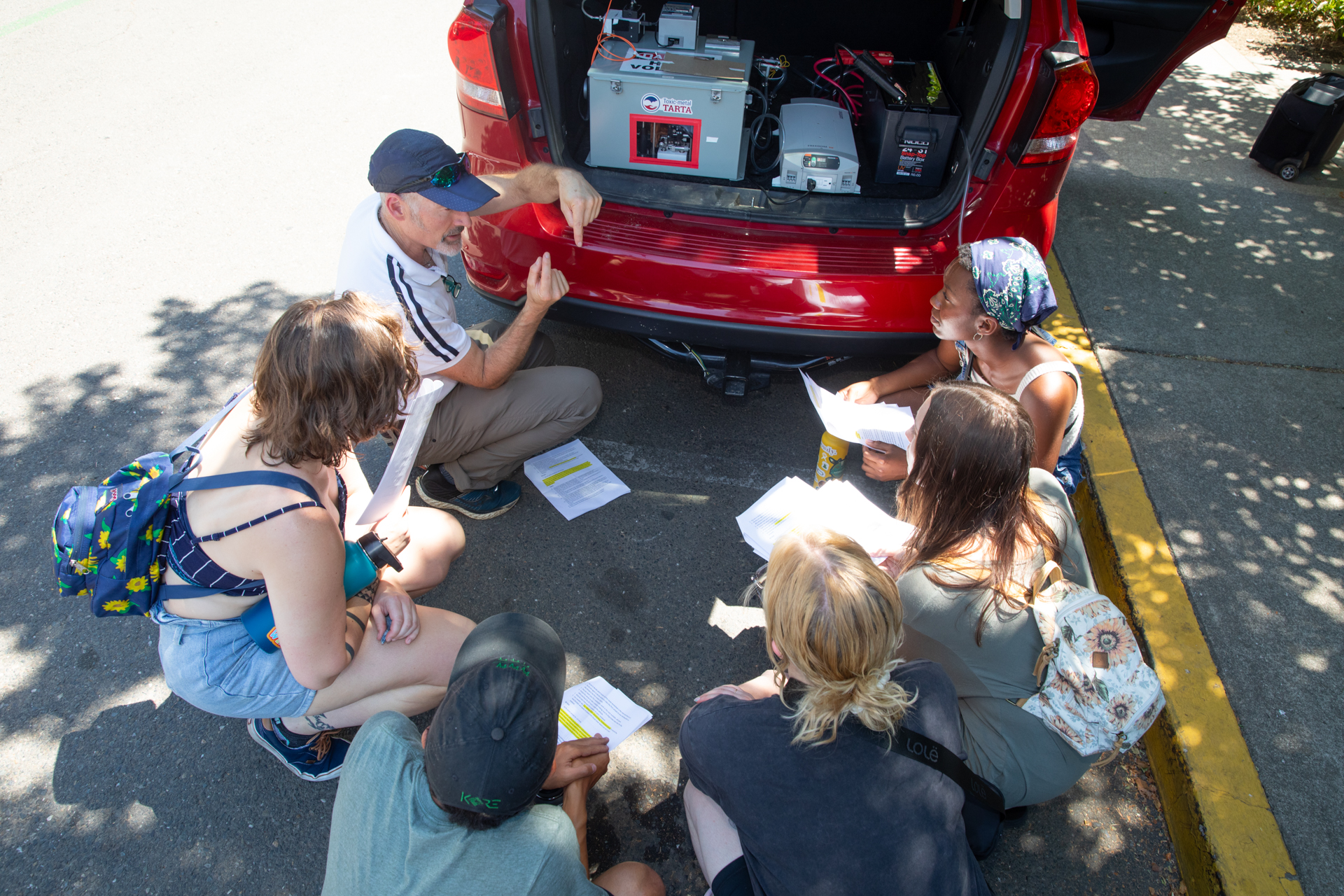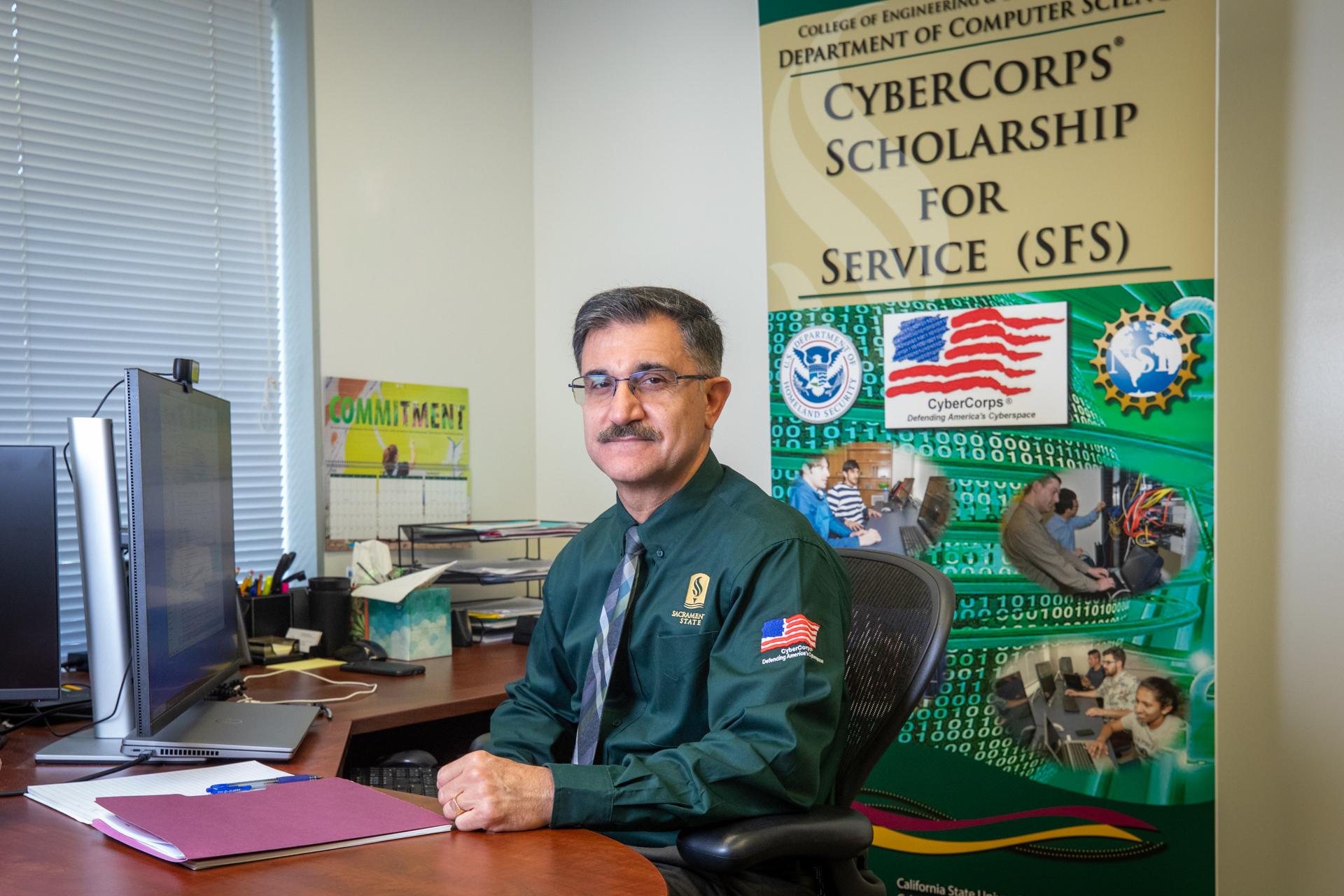Story Content
Electrical and Electronic Engineering classes focus on active learning to address equity gaps

September 19, 2023
Sacramento State’s Electrical and Electronic Engineering (EEE) department is taking a new approach to some of its key courses as it aims to reduce equity gaps, increase enrollment and improve graduation rates.
Supported by a $595,000 grant from the National Science Foundation (NSF), Project-ACE (Active-learning-based engineering Curriculum transformation for excellence in Equity) reimagines six EEE classes with a focus on engagement.
Beginning this semester, classes such as Introduction to Engineering, Introductory Circuit Analysis, and Network Analysis, which the department says are part of the critical path because they build upon one another as part of the major, will move away from a more traditional lecture format and implement project-based learning with real-world applications and undergraduate research experiences.
The three-year initiative of the College of Engineering and Computer Science (ECS) implements a hands-on approach to learning meant to lower drop rates, particularly among underrepresented groups, whose fail rates are higher, and attract more students to the program.
“Receiving this grant from the National Science Foundation has been very important for us because it focuses on how students learn,” said Mahyar Zarghami, EEE department chair. “I hope that projects like Project-ACE would increase the satisfaction rate of our students and make them more interested in the major.”
Though this type of learning is used in senior project courses, department research suggests that earlier exposure to the types of work students will do in the field will help students stick with and better succeed in the major, said project lead Praveen Meduri, EEE associate professor.
“It all comes down to using authentic practices that professionals use in the real field,” Meduri said. “We want to bring them into the classroom. There is something about students taking ownership of their learning and being able to build projects. It really has been shown to improve students’ self-efficacy.”
There is also extensive evidence that active-learning experiences help equalize education, Meduri said.
“It has been demonstrated with a preponderance of evidence that active learning can narrow the equity gaps,” he said. “Excellence is accessible to all colors; it's not a function of race or color. But when we look at reality, nationwide and at Sac State, students of color have significant academic barriers, so that has been the prime motivation for this project.”
Project-ACE is expected to benefit approximately 2,500 students over the next three years. As it progresses, Meduri and others in the department will analyze results and make adjustments where needed.
“This project will narrow equity gaps among historically minoritized students in some of our most critical EEE courses,” ECS Dean Kevan Shafizadeh said. “This kind of focus on active learning to help our students graduate in a timely manner with practical, hands-on experience with equity in mind is who we are and what we do at Sac State.”
There is something about students taking ownership of their learning and being able to build projects. It really has been shown to improve students’ self-efficacy.” -- Praveen Meduri, associate professor of Electrical and Electronic Engineering and Project-ACE lead
Along with Meduri, others involved in securing the grant and implementing Project-ACE include EEE Professors Mohammed Eltayeb and Milica Markovic, EEE and Physics Lecturer Sergio Aguilar Rudametkin, and Cathy Ishikawa, Biological Sciences lecturer.
The group also had support from Offices of Research, Innovation and Economic Development (ORIED) Senior Researcher Jill Shannon and Mariappan “Jawa” Jawaharlal, ORIED associate vice president and former ECS associate dean for Faculty Affairs.
“Graduation itself is an important milestone, but the real success comes with their learning experiences,” Jawaharlal said. “I also see a bigger impact of this kind of proposal, not just on our students, but on the campus.
“I'm hoping there will be more proposals along these lines from other colleges as well, which will transform our education, not just providing a lecture, but involving students in engaging, hands-on, authentic learning experiences.”
Another aspect of Project-ACE is training faculty, and developing 15 undergraduate and graduate learning and research assistants, who will obtain leadership, mentoring and various other skills.
For the EEE department, Zarghami said, being able to revamp courses and address student needs in this way is a significant step toward making its majors more approachable and helping its students succeed. He said he hopes getting a grant to support the project will motivate others to innovate as well.
“Our educational research is very important because we take pride in ourselves as being good educators,” Zarghami said. “I think this type of grant would be something that could be a model for the rest of our department members.”
The department has plans to work with the College of Natural Sciences and Mathematics to integrate similar active-learning strategies into math courses required for an EEE degree, Meduri said, as it continues to work toward making its majors more approachable to more students.
“These equity gaps are appalling. They have no place in higher education,” Meduri said. “These are not unique to Sac State. It's an equity crisis. We are only doing a small part in terms of taking a step in the right direction, and that's been the motivation for us.”
Media Resources
Faculty/Staff Resources
Looking for a Faculty Expert?
Contact University Communications
(916) 217-8366
communications@csus.edu


